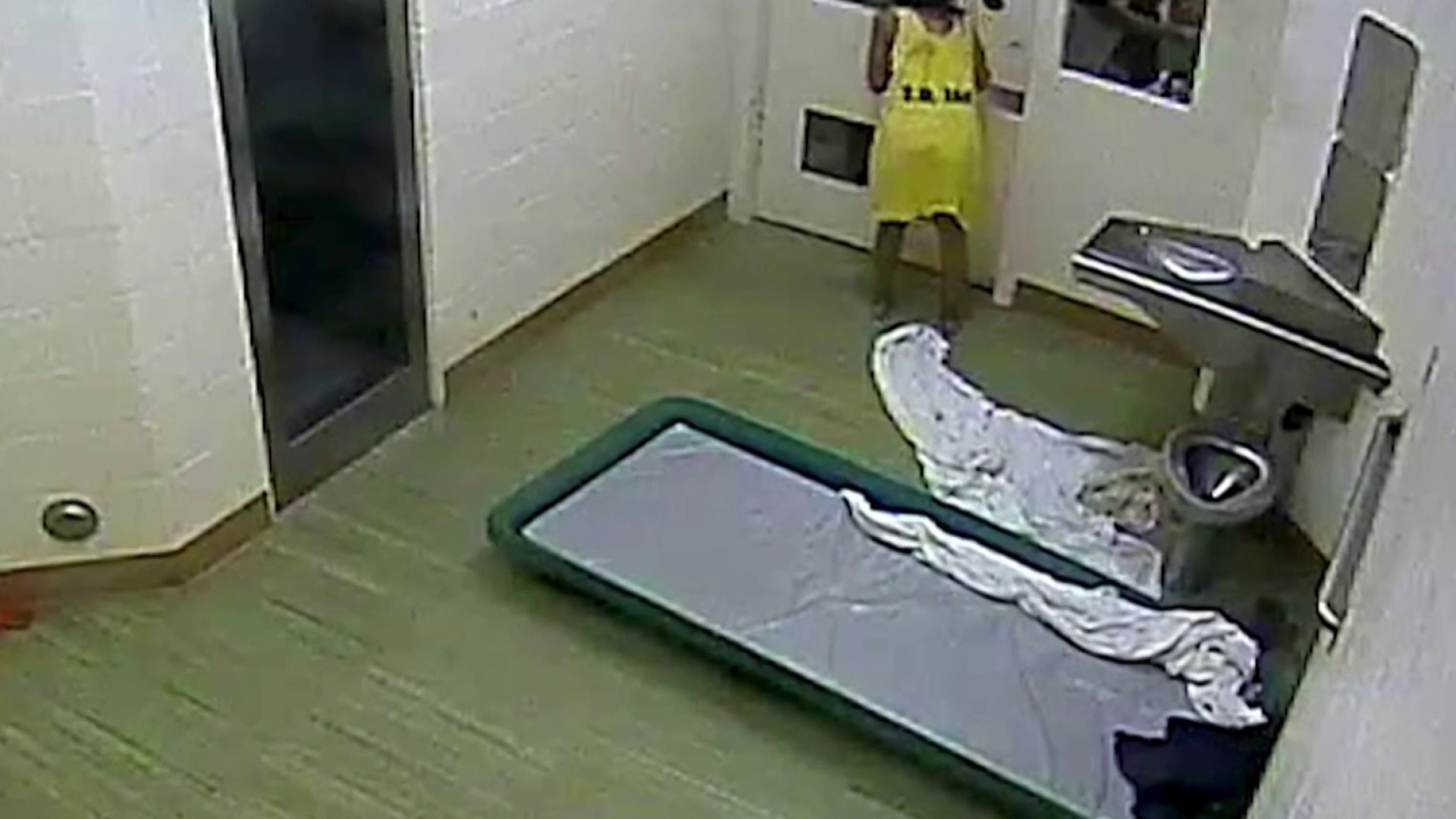In the last five years, more than 60 people have died inside local jail facilities, and NBC 7 Investigates found getting information about these deaths is difficult, even for the inmates’ families -- some of whom end up waiting for years to find out what happened.
The last time the Department of Justice reviewed in-custody deaths in California was back in 2005, too long ago, according to one local lawmaker who is now calling for change.
NBC 7 Investigates learned each death inside San Diego County Jail facilities is tracked by a single piece of paper called a BCIA-713 form. Since 1980, California law enforcement agencies have been required to report in-custody deaths to the California Attorney General’s office through this single-page form.
For the public and loved ones of those who died while in custody, the BCIA-713 form is generally all the information they will receive from the San Diego County Sheriff’s Department or jail staff. San Diego Defense Attorney Chris Morris said details behind an in-custody death investigation are rarely given out.
"It's really difficult for families to get information about how people die in custody until a lawsuit is filed,” he said. “And once a lawsuit is filed, public entities are required under obligation to produce this information."
Information on the BCIA-713 form is limited. It details where the death occurred, how the death is being classified and details about the inmate who died, but doesn’t include any other information. Families can request a medical examiner’s report, but those reports rarely include details on the jail’s investigation into the death and are not released for six months, sometimes up to a year after the death.
“It seems very counterproductive,” Morris said. “You end up filing lawsuits that go nowhere because the information is helpful to the public entity. But a lot of times it’s not. And so, just having a blanket clampdown on all the information related to jail deaths does seem counterproductive."
Local
A SOLDIER LEFT BEHIND
"He was just really sweet, did everything for everybody,” Chassidy NeSmith told NBC 7 Investigates about her husband, former Camp Pendleton Marine Kristopher NeSmith. “He gave money to every homeless person we saw. Our last $5," she said.
Kris swept her off her feet when they first met. He was a rifleman, home in San Diego County after serving a tour in Korea. He wanted nothing more than to start a family with Chassidy.
But, Chassidy said she knew Kris was troubled. He had battled with depression from time to time, but she thought she could be the answer to fixing those problems in his life. Kris’ mental health began to decline, his family said after a near-death experience while training at a local rifle range.
In August 2013, Kris was arrested on Camp Pendleton after assaulting a fellow officer on base after he suspected the officer was flirting with Chassidy. When Chassidy came home that day, she found Kris panicked.
“'They're taking me to the brig! They're taking me to the brig! I'm not going… I'm not going,'" Chassidy said, quoting Kris. She told NBC 7 Investigates Kris ran into the bathroom where he had prepared a phone cord to hang himself. Chassidy said, it wasn’t the first time she had to intervene and save Kris from killing himself.
For the assault on the fellow Camp Pendleton officer, Kris served four months in the brig. Due to his suicidal behavior, Kris was kept in a rubberized room with a Velcro suit on to protect him from himself for the entire sentence.
While in the brig, Kris’ family says his mental health only got worse, and when he was finally released, Chassidy still had a hard time getting Kris the help he needed.

Soon after his release, during Thanksgiving weekend in 2013, Kris was arrested by San Diego County Sheriff’s deputies for assaulting two strangers, stabbing one and beating the other.
Kris was incarcerated at the Vista Detention Facility. In the following months, Chassidy learned she was pregnant with Kris’ child. Kris was excited -- this was the family he had always wanted --- but he vowed he would not allow his son to have a father who was serving life in prison.
Chassidy and Kris’ father say they took turns calling jail staff, the District Attorney’s office and the public defender to warn them of Kris’ past suicidal behaviors and asking that he be closely monitored.
Five days after a judge ruled Kris would go to trial for the assault charges, Chassidy received the call she had always feared.
"My heart just dropped to my feet,” she sobbed. “It was the worst thing someone could tell you."
Kris killed himself using a bed sheet in his jail cell. He was only 21 years old.
Chassidy said she doesn’t know how she will explain Kris’ death to their son Skylar when he is older. “I think about that every day, how I am going to tell him. I haven't figured it out yet,” she said.
Unlike his time in the Camp Pendleton brig, Kris was never placed in a psychiatric ward or closely monitored for his suicidal behaviors, even though Chassidy and family warned staff about Kris’ mental illness.
“Somebody wasn't doing their job,” Chassidy said. “They didn't find him until shift change the next day. A whole day? How could you leave somebody for that long?”
Kris’ family began their search for answers in March when they filed a lawsuit against the sheriff’s department.
Click through the documents below to see the complaint and more on NeSmith's case.
When NBC 7 Investigates reached out to the sheriff’s department for details into Kris’ death and their response to the lawsuit recently filed, spokesperson Jan Caldwell told us they could not comment due to the pending litigation and that they would rather this issue be decided in a courtroom instead of through the media.
LAWSUIT FILED REVEALS KEY EVIDENCE IN SURFER’S IN-CUSTODY DEATH
Daniel Sisson’s mother Shaunda Brummett knows what it’s like to be left in the dark after her son died while in custody four years ago.
"In the beginning it was really hard to get the paperwork,” Brummett said. “We wanted to see if there was something they were hiding. We wanted to see more facts.”
In 2011, Sisson was taken into custody on drug charges. Since he was 11, Daniel took prescribed pain killers to cope with a painful, arthritic disease known as Rider’s Syndrome. As he got older, Sisson began using harder drugs.
After less than 48 hours in jail, guards found Sisson dead in his cell.
Brummett held back tears as she said, "I think I'm still in shock. I keep thinking he's gone away to school and he'll come home someday.”
The family would later learn Sisson died from complications stemming from an asthma attack.
A year after his death, the Sisson family also filed a lawsuit against the San Diego County Sheriff’s Department. Through the courts, the family obtained surveillance footage from the jail that shows the day Daniel died. The video reveals guards had not checked on Sisson for hours.
Brummett still feels a sting when she talks about it.
“When I saw the evidence, it was hard to take,” she said. “It made us angry, made us bitter. We felt like maybe if they would have checked on him, he could have been alive.”
The Sisson family was awarded $3 million last year after a jury found the sheriff department’s negligence led to Sisson’s death.
NBC 7 Investigates reached out to the sheriff’s department to see if they had made any changes since this verdict and received this statement from Sheriff Bill Gore:
"We recognize the tremendous responsibility we have while housing and caring for almost 5,000 inmates on a daily basis. When reviewing our response to health emergencies which occur while a person is in our custody, we examine all of the facts and circumstances to see what, if anything, could have been done differently to provide a higher quality of care. Each death is reviewed to determine if any improvements to our health care services are appropriate. Although we don't agree with the jury's finding, we realize they have spoken, and we will continue in our efforts to provide the best level of health care possible. "
Morris, who also represented the Sisson family in their case, said families of deceased inmates cannot acquire evidence like the surveillance video unless they file a lawsuit.
Chassidy is hoping one day she’ll have answers to for Kris’ death.
“We can't let this go on in our jail systems,” she said. “It could be somebody else's kid, brother, mother, father, you know? It could be anybody.”
In April of this year, Assemblywoman Shirley Weber drafted a bill that would require more records to be released to the public and an annual report to be completed by the Department of Justice on inmate deaths.
NBC 7 Investigates is working for you. If you have more information about this or other story tips, contact us: (619) 578-0393, NBC7Investigates@nbcuni.com. To receive the latest NBC 7 Investigates stories, subscribe to our newsletter.



